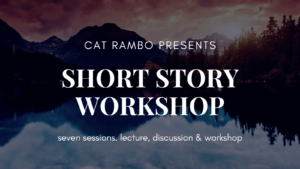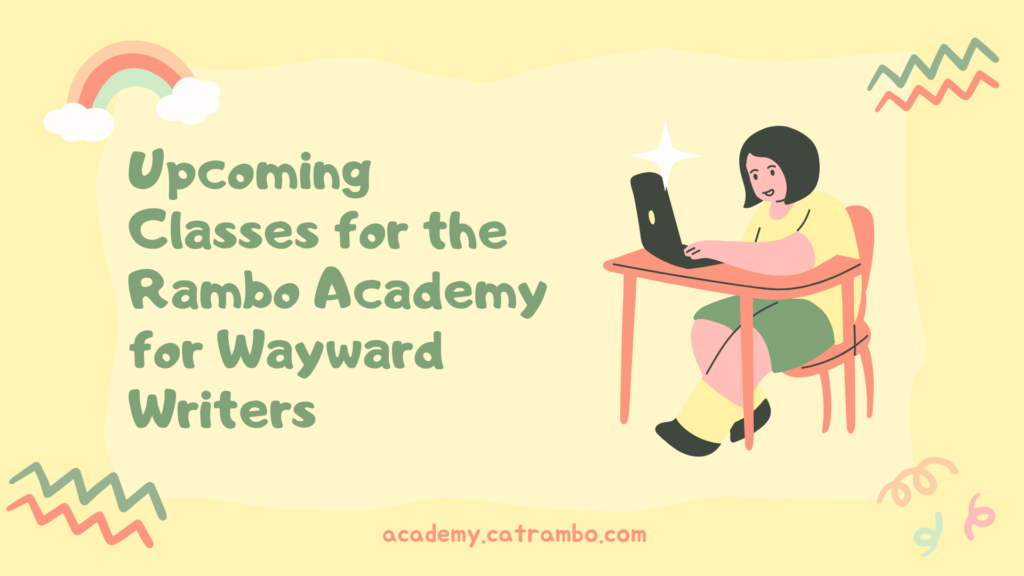 This is the workshop I give every couple of years; I will not be giving it in 2023. There will be
This is the workshop I give every couple of years; I will not be giving it in 2023. There will be two separate one section.
This seven week workshop focuses on the basics of writing speculative fiction short stories, including figuring out and implementing your plot, creating believable and engaging characters, effective world-building, what to do with a story once it’s finished, dealing with editors and markets, and other necessities. Students will have the opportunity to workshop at least one story over the course of the class and will also be writing and sharing weekly writing assignments.
Sessions will be recorded for students and available three days after the live session. You will also have access to the Rambo Academy Discord server and discussion/events/resources there.
Section two: Tuesday 6-8 PM Eastern time September 6, September 13, September 20, September 27, October 4, October 11, October 18.
Cost is $499 for seven sessions. Each session runs two to two and a half hours. All sessions are recorded for student use only. To register, mail me at cat@kittywumpus.net and indicate which section you are applying for and how you would like to pay (Paypal, Venmo, check, etc.) There are three free scholarships in each section. Deadline for applying for a scholarship is August 19.
Testimonials
-
- Taking a workshop class with Cat was a great experience. Highly recommended! – Fred Coppersmith
- Every week is like a shot in the arm of pure encouragement & enthusiasm. -Liz Neering
- Wanted to crow and say thanks: the first story I wrote after taking your class was my very first sale. Coincidence? nah”¦.thanks so much. -K. Richardson
- Cat is a fun tutor with plenty of experience as both a fiction writer and a professional editor. She has plenty of sound, practical advice to offer, and the writing exercises are enjoyable. A course like this allows you to meet other writers of varying levels of experience and talent, which is a very good way of finding out what you are good at and where your skills need work. It also gives you a bunch of potential writing buddies, which can be very valuable. -Cheryl Morgan
- Cat Rambo’s classes are both entertaining and edifying. If you are an aspiring writer or editor do yourself a favor and sign up! -Stefan Milićević
Some of the stories produced during this class:
Bo Balder, “The Doll Is Dead”, Penumbra
Nicholas Lee Huff, “Smitten“, Every Day Fiction
Jamie Lackey, “Moving Past Butterfly“, Bastion
Jamie Lackey, “The Path to Butterfly,” Lakeside Circus
Sunil Patel, “Sally the Psychic Alligator“, Fireside Fiction
Frances Rowat, “Palimpsest“, The Sockdolager





 Results of Our First Pitch Session
Results of Our First Pitch Session
 This weekend’s classes are:
This weekend’s classes are:



